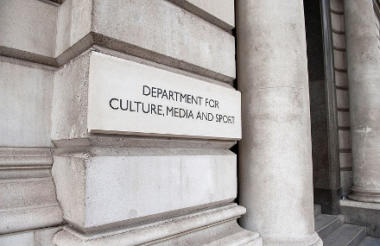The government has restricted the Tampon Tax Fund in its own self interest and harmed beneficiaries as a result, says David Ainsworth.
The government has published the latest round of funding available to women’s charities from the Tampon Tax Fund.
Tucked away in the back is a list of things you can’t spend the money on. It includes three things that well-run charities are very likely to want to spend money on:
- Campaigning, advocacy and awareness raising
- Core costs
- Repeating a previously-funded programme that's already working
Now, in the case of another fund, I might be tempted to say that this is the government’s money, so notionally, it can spend it how it wants. This is public money, and I’d like to see it spent as efficiently as possible. Ironically the fund came about because of a campaign to scrap VAT on sanitary products and the government has made a big play of how this is women’s money, and it is just giving it back to women.
But the list of restrictions here isn’t aimed at making life as good as possible for women. It’s aimed at making life as easy as possible for the government. All of the restrictions above mean the money is likely to have far less impact than it could have had. Sadly, the Tampon Tax Fund is just one example of this kind of ineffective funding restriction.
Intervene earlier, not later
The ban on awareness raising is odd. It sounds like the government doesn’t want women’s organisations to use its money to warn women how to avoid getting cancer, for example. Or to tell a woman where to find a refuge, after her husband beats her up.
It doesn't want women to be told anything, in fact, that might prevent a problem. At least not with government cash.
In some cases, you can make an argument that handing out money to people you know will lobby you is a clear conflict of interest. There are arguments either way on this, but I could accept a ban on lobbying. Awareness raising, on the other hand, and advocacy...
Surely the earlier you stop a problem, the less it costs you. Yet the government wants charities to focus on fixing things which have already gone wrong.
The reason for this is clear enough: the government doesn’t want criticism, it doesn’t want to know if it gets something wrong, and it doesn’t want to hear about good ideas that weren’t invented here.
It’s hard to blame the government completely for banning anything that might involve criticism, but it doesn’t change the fact that it will preferentially fund interventions that have less impact, to make itself look good.
Fund stuff which works
“There is no automatic guarantee of continuation funding from the Tampon Tax Fund,” the guidance says. “Applications will be considered for projects that are genuine new developments of previously funded projects provided there are new outcomes”.
Why? You’re refusing to fund projects which are already working, which you have an existing relationship with. Projects you have already evaluated and found to be effective. Projects which have shown their value by keeping the doors open.
So why find some new, unproven interventions instead? They're unlikely to be better than the ones that are working already.
You’re basically telling the people you fund to play the system – to pretend that their project is delivering new outcomes when it’s doing exactly the same thing. And why are you doing it? Basically so that your press release looks good – so it can have some new shiny stuff on it and get a bit more coverage.
Core costs
We continually hear that core costs are the hardest part of a charity’s work to fund. But they’re the rock everything else is built on. You can have the best interventions in the world, but you still need to pay the electricity bill. Very few good charity projects are delivered in the dark.
So why not fund core costs? I suppose because of the positive associations you get from delivering at the front line. But this is pure selfishness. That project can’t be delivered unless someone else, more noble, pays its overheads.
To be fair to DCMS, the Tampon Tax Fund does say it will pay some of the core costs associated with the project it funds. It doesn’t exactly shout “We believe in full cost recovery!” but it’s better than nothing.
The truth is, though, I suspect there will be a lot of self-censorship. I suspect those who apply for this fund currently believe that if they ask for their real costs, they’ll get nothing.
Why restrict it in the first place?
The question is not whether the restrictions above are right. It’s why you would want to give restricted funding at all?
Charities said in an nfpSynergy survey in 2012 (now being repeated) that they would prefer £700 of unrestricted funding to £1,000 of restricted. Assuming they know what they’re talking about then you can, by giving unrestricted funding, instantly increase your effectiveness by 50 per cent.
Government may talk about accountability, but this is essentially nonsense. We’ve seen repeatedly that when something becomes a political priority, huge amounts of cash are distributed with no accountability whatsoever. The Libor fines went to whoever would generate a good headline. Kids Company received millions with no restrictions. So has the NCS.
A plea
At the heart of what I’ve written are questions of trust and ability. Government doesn't trust the charities it funds, and it worries they might generate a bad headline, and those funding lack the ability to identify good organisations with confidence, so they ring the grant around with restrictions, in case the people they fund go rogue.
This causes issues. If you want to solve a problem, the way to do it is to find people who know how to solve it, and who you trust, and give them the money to do it. Let them decide what to do with it.
The simple question to ask is: “Who knows most about this issue? Me or the person I’m funding?”
If it’s the latter, why are you telling them how to use the cash? Shouldn’t it be the other way around?
If you don’t know enough about an issue to know whether you’re giving the money to the right people, then don’t give the cash away yourself. Find someone who’s an expert in giving away cash, and get them to do it.
Don't give money to people who you will look good standing next to. Give money to people who will use it effectively.
Give money only to people who are doing something that has been proven to work, or who are trying to prove that something works.
If you’re going to give away money, do it well.
Related articles












